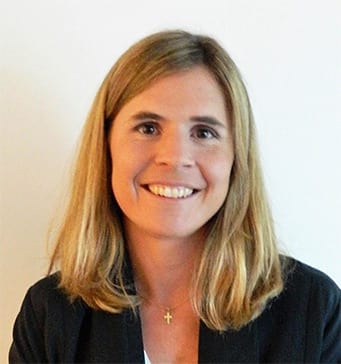
By Rose Ors and Andrew Cohen
Berkeley Law and Minerva Project have launched Leadership in the Legal Profession, an online executive education course for legal professionals that begins May 5. The program is designed to address a significant deficit in legal training; namely that in today’s world, attorneys need to be effective people and project managers, but are only trained on legal acumen and knowledge.
The 10-week program leverages an innovative, business school-style curriculum and groundbreaking education technology developed by Minerva Project to help legal professionals improve their management skills, ability to engage with clients and key stakeholders, public speaking, and more. By reframing what leadership means in an increasingly competitive and complex business environment, the program enhances participants’ ability to succeed as the legal industry evolves and embraces disruption.
The course first focuses on leading in complex systems—systems thinking, behavioral science and motivation, and purpose-driven leadership. It then tackles engaging with interpersonal intelligence, which includes leading with emotional intelligence, effective team dynamics, and communicating with impact. The final unit, on navigating uncertainty and driving innovation, confronts problem analysis in evolving systems, agile innovation, and decision leadership.
Program benefits include:
- Flexibility (being able to participate in the virtual course from one’s home or office);
- Effectiveness (spreading the course over 10 weeks allows participants to implement learnings over time, increasing the likelihood that their new skills become part of their personal leadership and people management toolkit); and
- Affordability (costs are notably less than in-person leadership courses)
The two-hour weekly classes are highly interactive. Instructors will guide participants from across industries and geographies through in-class discussion, debate, breakout groups, and real-time polling. Participants will expand their professional networks, earn CLE credit where applicable, and become part of Berkeley Law’s Executive Education community—with eligibility for its alumni discounts.
Dean Erwin Chemerinsky says the initiative will make Berkeley Law “a pioneer in the instruction of leadership in the legal profession. Effective people and project management skills are critical for success in the legal industry. We are fully committed to providing not only our own students, but Berkeley Law alumni and other legal professionals with a legal education that is future-ready.”
The public launch follows a successful pilot program with attorneys from major law firms, multinational corporations, and top Silicon Valley startups. Below is an edited Q&A with two of them, Wei Chen (vice president and associate general counsel at Salesforce) and Jackie Donaldson (general counsel at Nestlé for Argentina, Uruguay, and Paraguay).

Q: What did you hope to learn from the course?
Chen: I had been looking for a leadership course that was intellectually challenging and delved into how to manage complexity in all its myriad forms. I wanted to learn to be the type of leader who can motivate and inspire a very high-performing group of legal professionals. It exceeded my expectations.
Donaldson: I agree. I not only wanted to become a more effective leader, I also wanted to learn ways to better manage our legal matters—to put out fewer fires. Be less reactive … I’m happy to share that the course has helped me with both.
Q: How do you now approach problem solving?
Chen: I now think in a more nuanced and multilevel way. The more complex a problem is, the more critical it is for me to step back and bring in diverse viewpoints and … come up with a course of action. Similarly, I’m more aware of the importance of knowing when you need to adapt or pivot.
Donaldson: I approached problem solving in a very set way, rather than being open and curious. What helped dislodge me from this mindset was the problem-solving exercises we did in teams. It was eye-opening to learn how we all come in with certain biases. Becoming aware of our biases has helped me work on putting mine aside.
Q: Why have leadership skills become so critical to your legal department’s success?
Chen: Many years ago I was disappointed with myself because I wasn’t able to accomplish as much as I wanted to. Then I realized that I was trying to do everything myself. Now I know that I need other people—at times, many others. It’s the nature of our work, indeed, the nature of our society. And because you need people working together in teams, you need to motivate, inspire, and support them. That’s where leadership skills are essential.

Donaldson: We can no longer add value merely by being an expert in a substantive legal area. We’re now business partners with our internal clients and we must understand the business. More and more of us work with outside regulators, and to do that well we have to be effective advocates and negotiators. The global nature of our business also adds a lot of complexity, not just with substantive work but cultural norms.
Q: How did you think about leadership before the course and did your thinking evolve?
Chen: I’ve always looked to those whose leadership style I admired and tried to emulate them. Now, I understand there is not one type of leader or a single path to a leadership role. I continue to learn from the people whose leadership style I admire, but now I apply those lessons to who I am as a leader.
Donaldson: I had the notion that a leader was someone who could change the world—a superhero. The course changed the fallacy. Now, I realize that any one of us can choose to lead. I view leadership as a series of decisions and choices—some bold, some strategic, some empathic—to move people, groups, and organizations towards a common goal. The mindset shift has given me more confidence that I can learn to lead and help others lead too. I have more trust in my ability to do both.
Q: How was the online experience?
Chen: I was blown away by how fantastic the technology was. It made the learning experience extremely interactive—as close to a live class as I’ve experienced. The instructor was also fantastic. He was a master communicator with deep knowledge of the material.
Donaldson: I’d love to have this type of technology in our offices. It provides an impressive way to connect with your team or clients remotely. At the beginning we were kind of reluctant to speak up, I guess like any new student, but in no time at all we were all fully engaged. I also thought the instructor was excellent. The whole experience was A+.